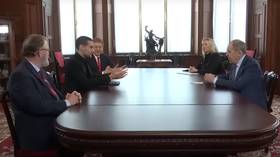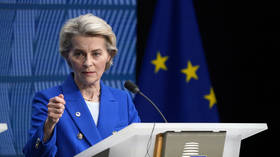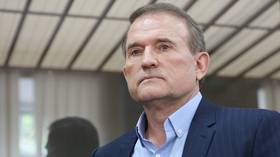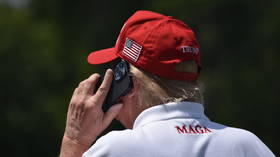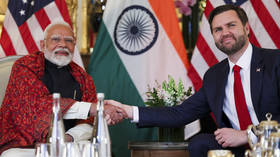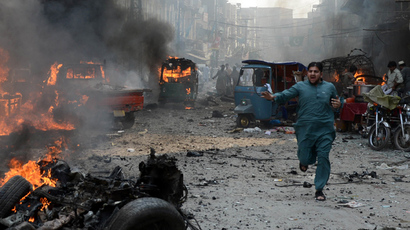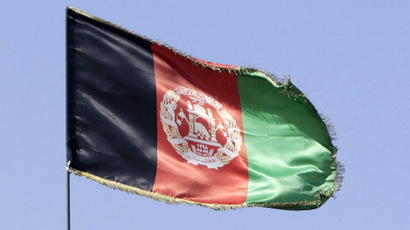'Not in interest of Pakistan's people': US resumes aid with $1.6bn deal
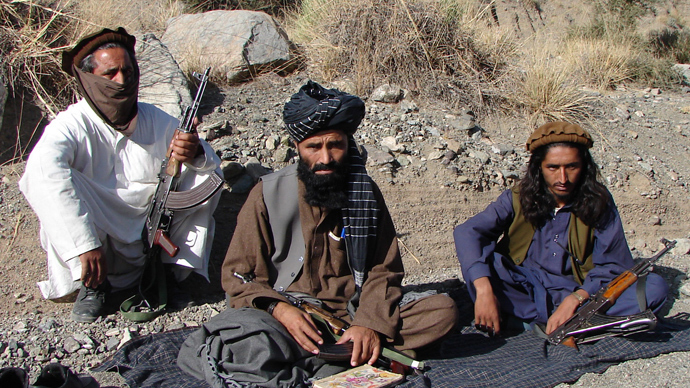
The US has quietly approved $1.6 billion in military and economic aid to Pakistan, a signal that the relationship is being restored after a falling out over the operation that killed Osama Bin Laden, as well as America’s deadly drone strikes.
The two countries have recently announced a restart of their strategic partnership after a long break. But despite Prime Minister Nawaz Sharif’s upcoming trip to Washington, the two are not displaying any public happiness at the prospect of cooperation: Pakistan is uncomfortable with its image of dependency on the US, while the latter would prefer not to be seen as too close to a government frequently accused of corruption by a substantial portion of its population.
A number of crises have existed between the two: the 400 civilians killed by drone strikes in the last decade coupled with America’s failure to adequately inform Pakistan of its operations -including the one to capture Bin Laden. Or the two dozen Pakistanis killed by mistake in November 2011.
The US State Derpartment’s deputy special representative for Afghanistan and Pakistan, Dan Feldman, told the AP that "Pakistan's long-term stability is of critical national security interest to the US, so we remain committed to helping achieve a more secure, democratic and prosperous state, including through continued civilian and military assistance."
But there is still no transparency in the relationship between the two. And with the withdrawal of US troops from Afghanistan coming up, questions remain as to who benefits most from this partnership.
Anti-war activist with the international ANSWER coalition, Richard Becker, does not see the developments as surprising. He explains it as a multifaceted situation involving, on the one hand, the American desire to keep China, its adversary, in check; on the other – keep a foothold in the region by subsidizing a widely unpopular, but powerful, Pakistani military establishment.
“We witnessed a charade in the US and Pakistan for many years, where the US carries out these blatant violations of international law… and the government pretends to object; the money keeps flowing and the charade keeps going on… [The] US views Pakistan as another asset in its strategy of surrounding China.”
The sum to be donated kept changing as well. The State Department
told Congress in late July that $295 million would be spent to
assist Pakistan’s military. Twelve days later, the figure grew to
386 more million on top of that.
And August 13 saw the arrival of two more notifications – worth
$705 million, to help the country’s forces fight insurgents in
western Pakistan.

Secretary of State John Kerry’s August visit to Pakistan
underlined the restart of a “strategic dialogue” between
the two countries, with emphasis on both military matters and
fostering investment. One of Pakistan’s biggest problems, aside
from terrorism and corruption, is its chronic power shortages. A
part of the investment is supposed to go toward studies leading
up to the construction of a new dam, which, according to USAID,
could provide 60 million people with electricity, as well as 1
million acres of crop land. But of the entire $1.6 billion, only
$20 million will go toward those studies. The actual construction
is projected to be a massive $15 billion.
Pakistan still has not managed to secure construction money from
the World Bank, while the Asian Development Bank is waiting for
the US and India’s approval before it provides anything toward
the dam’s construction – something Pakistan has heavily lobbied
for.
Neither the US, nor Pakistani officials at its Washington embassy
have agreed to comment on the upcoming investment ahead of
Sharif’s visit to the US. An atmosphere of secrecy continues as
briefings concerning the money are mostly held behind closed
doors.
Therefore, according to Becker, it remains difficult to surmise who actually gets the money, where it goes once it arrives.
“The political system in Pakistan in unsavory and it is an
unsavory government, I believe, in Washington as well. And
together they wanted to disguise what they are really doing,
which is not in the interest of the people of Pakistan or
Afghanistan or the US for that matter”, Becker believes.
“But it is in the interest of empire and those who collaborate
with the center of power in Washington.”
Furthermore, Becker sees the relationship to be complicated by
the widely criticized ties the Pakistani political establishment
has with the very terrorist groups that Washington pledges to
help it fight.
“It is a complex relationship that is very un-transparent,
which is designed to carry out the interests of Washington.”


